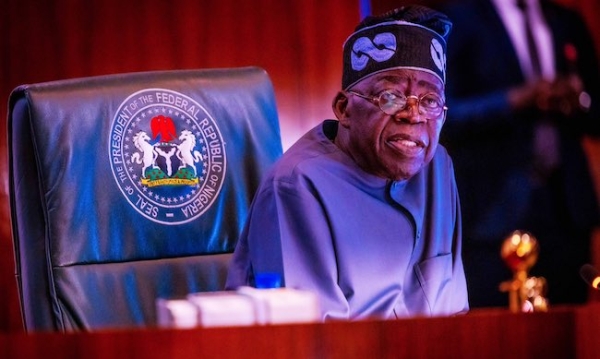The Independent Media and Policy Initiative (IMPI), has said the economic reforms of President Bola Tinubu’s administration are based on a clear plan to salvage Nigeria’s economy.
Chairman of IMPI, Dr. Omoniyi Akinsiju, who stated this in a statement he signed, said years of populist macroeconomic policies sunk the country to a level that it had to change course or be doomed.
The group said though attacks on the ongoing reforms are natural if viewed from the relatively narrow and subjective context of the steep change in the country’s cost of living, the reality of the nation’s current macroeconomic situation was a consequence of its past.
“We have observed with interest the criticisms that continue to trail the reforms implemented by President Bola Tinubu’s administration.
Of particular interest are two opinions that gained some traction. One of the critics finds the reforms to be a: ‘wreckage of the past 15 months, from which the country is reeling.’
“The other viewpoint, an editorial, brands the ‘government as insensitive and strategy-deficient.’ It also sees the government as incompetent to perform its primary duty of delivering welfare and security to the people.’
“These attacks on the ongoing reforms are natural if viewed from the relatively narrow and subjective context of the steep change in the country’s cost of living,” the group said. Insisting that the reality of the nation’s current macroeconomic situation is a consequence of its past, IMPI said:
“When the premise and predicates of the nation’s economic trajectory are reviewed and aggregated, the apparent conclusion will be that we are where we are because this affliction of economic malaise at this point is predetermined.
“Since 1972, the Nigerian economy has been characterized by an unpredictable circle of bust and boom. In layperson’s terms, it means that one moment, we are deemed rich and able to buy whatever catches our fancy, and everybody, including the media, is happy.
The next, we are flat broke. “We lament the difficulties encountered in sating our basic needs, whining and criticising the government in power as the source of our decimated existence.”
IMPI cited similarities between Nigeria and Venezuela, another oilrich country to drive home its position, saying: “Like Venezuela, oil has taken Nigeria on an exhilarating but dangerous boom-and-bust ride.
“Again, like Nigeria, decades of poor governance have driven what was once one of Latin America’s most prosperous countries to economic and political ruin.
“In 2008, crude oil production in Venezuela was the tenth-highest in the world at 2,394,020 barrels per day, and the country was also the eighth-largest net oil exporter in the world.”
It said Venezuelan leaders implemented the wrong macroeconomic policy between 2000 and early 2010 when Venezuela’s economy, like that of Nigeria, was booming due to a prolonged period of high and rising grain, metal, oil and gas prices.
“Between 2000 and 2015, government spending in Nigeria, like Venezuela, was deeply pro-cyclical. Instead of saving at least some money for bad times during the good times – as Norway, Saudi Arabia, and virtually all other oil exporters have done – Nigeria established the Excess Crude Account (ECA) by fiat in 2004 without legislative backing.
“In May 2007, the ECA had up to $20 billion. Still, like the Venezuelan government, which ran a double-digit fiscal deficits as the economy boomed, spending far outpaced income from taxes and other revenues.
Both countries were on record for raising their external debts sixfold to finance these unnecessary shortfalls.” IMPI said while Venezuela saddled the state-owned oil company with over $100 billion in obligations, it noted the Nigerian government depleted the ECA by more than 80 per cent, from $20 billion to $2.4 billion.
Quoting a World Bank report, the said like Venezuela, which lost $300 billion to corruption through its foreign currency system, Nigeria incurred a loss of N13.2 trillion implementing its foreign exchange subsidy policy between 2021 and 2023.
The policy group noted that it was against this backdrop that the Tinubu administration introduced reforms targeted at preventing the country from going the path of Venezuela.
It said: “The Venezuelan economic crisis scenario remains a possible reality for Nigeria if the Tinubu administration had adopted the Maduro option in 2023.
Our estimation of his decision to scrap the populism macroeconomic template is that the President has salvaged Nigeria’s national economy from a whirlwind of economic turbulence and total collapse.
“As expected, the trailing effects of the stoppage of fuel subsidy and harmonization of the multiple foreign exchange windows, being the principal reforms orchestrated by the administration, are upending the ways of life and threatening the basis of the sustenance of Nigerians,” said IMPI.”
However, it said as the World Bank noted, though fiscal reforms were painful, they were needed to save the country from imminent collapse.
“Given the comparative analysis we have conducted in this Policy Statement, we fully adopt the World Bank submission and subscribe to the fact that the Tinubu reforms have started yielding results. “However, what we consider bewildering is the accusation against President Tinubu from critics,


